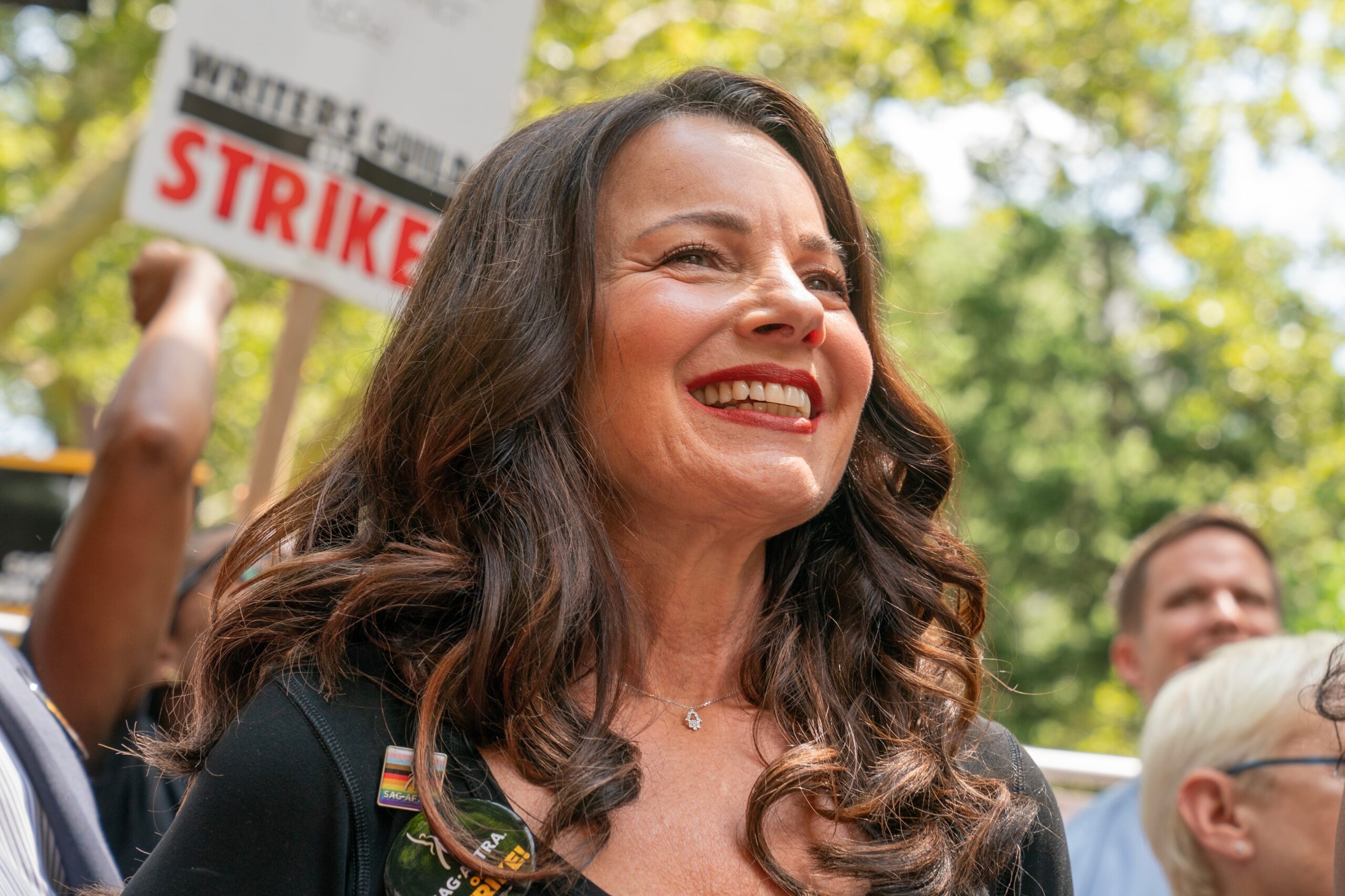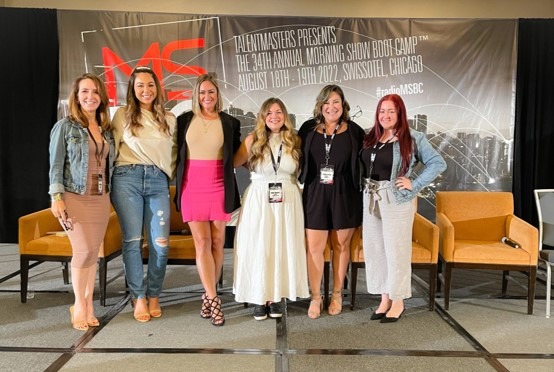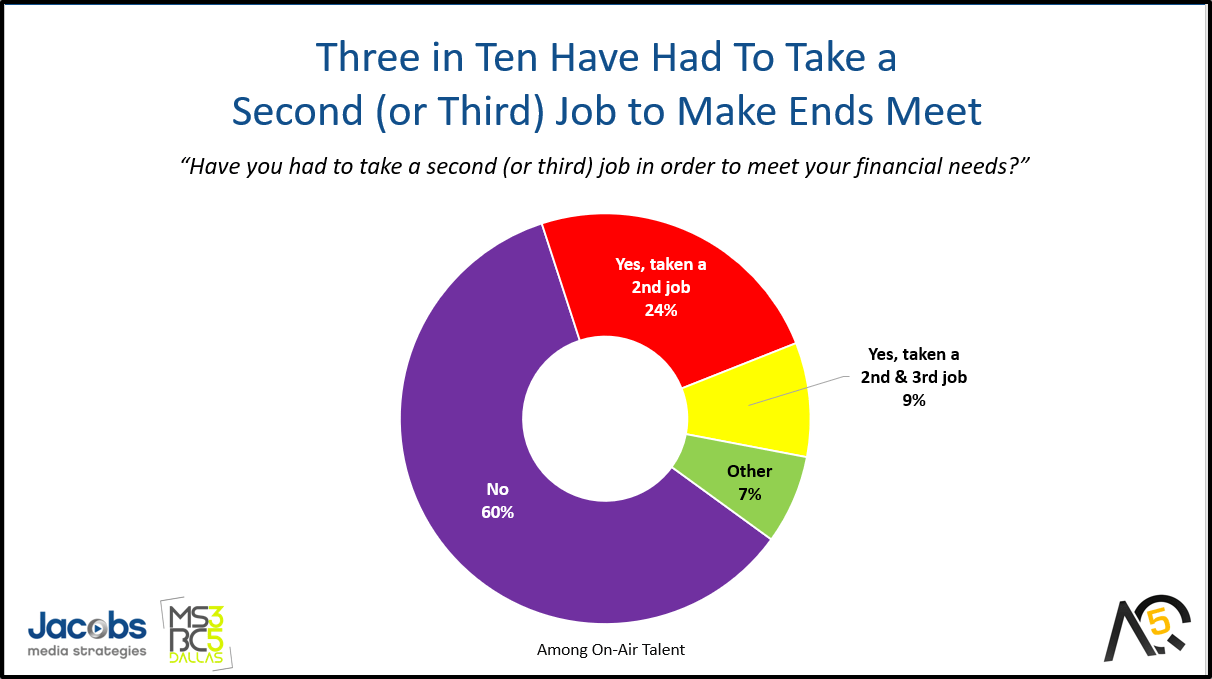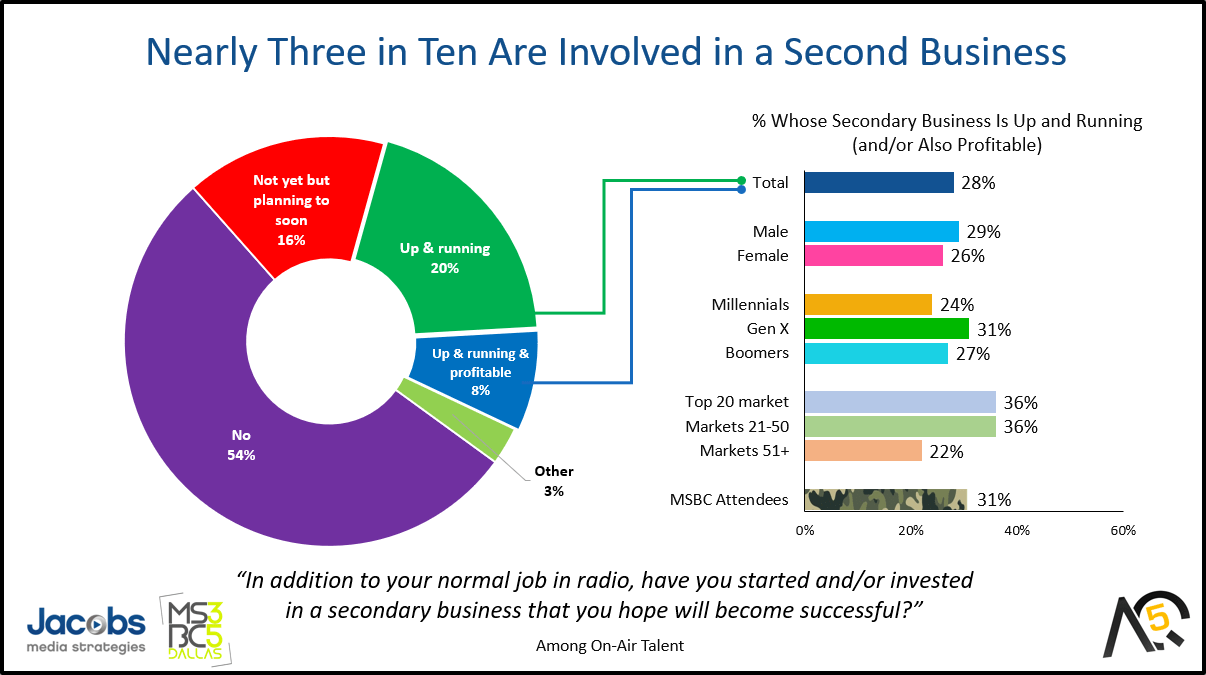
The things you learn at Morning Show Boot Camp!
Remember when having to take a second job meant that you simply weren’t bringing in enough dough from your first job?
Sometimes necessity is, as they say, the mother of invention. With apologies to the Zappa family, at least it will put a few bucks in your pocket during a time of need. That’s what some usually well-compensated actors are experiencing during a Hollywood strike where the credits will not be rolling anytime soon.
The Screen Actors Guild along with AFTRA walked out in sympathy with the Writers Guild-America last month. SAG-AFTRA counts 160,000 TV and movie actors, a large chunk of the Hollywood workforce.
a large chunk of the Hollywood workforce.
And to pay the bills, from car washes to their nannies, a sizable number of striking actors have reactivated or opened new Cameo accounts.
Chances are you’ve heard about Cameo, an online service where somebody famous – or sorta famous – will produce a custom birthday or anniversary greeting – or just about anything you like – for a friend, family member, or colleague.
Cameo launched in 2016, and I wrote a blog post about the service when Mick Fleetwood gave Cameo a spin three years later, offering personalized greetings to his fans for the not-so-paltry sum of $1,000. At the time, I was critical of a superstar musician offering cute videos for a grand a pop.
But these days, Cameo might be considered an easy “side hustle” for actors waiting out some sort of compromise between the studios and SAG-AFTRA. Cameo tells the New York Times they’ve experienced a 137% jump in new or reopened accounts in July, compared to June, a clear sign the Hollywood rank-and-file need a little pin money to get them through this strike.
 Even Fran Drescher (pictured), SAG-AFTRA’s president, reactivated her Cameo account, even though she has yet to accept a booking. Browsing around Cameo reveals other eyebrow-raisers, including greetings from “Entourage’s” Jeremy Piven ($300), “Jersey Shore’s” Snooki ($300), and Malcolm McDowell, famous for “A Clockwork Orange” and other big films (just $100).
Even Fran Drescher (pictured), SAG-AFTRA’s president, reactivated her Cameo account, even though she has yet to accept a booking. Browsing around Cameo reveals other eyebrow-raisers, including greetings from “Entourage’s” Jeremy Piven ($300), “Jersey Shore’s” Snooki ($300), and Malcolm McDowell, famous for “A Clockwork Orange” and other big films (just $100).
While perusing the Cameo cavalcade of stars, I even ran across Brian Cox, the salty Scottish actor whose best known role is playing Logan Roy on “Succession,” the irascible patriarch of the media conglomerate Waystar Royco. For a mere $689, he’ll cut a greeting for you mom or your boss that contains his signature catchphrase “F*** OFF!” (Please DON’T play the Cameo video below if you’re offended by F-bombs.)
While unlikely that any major movie or TV stars will hit a new tax bracket by making custom cameo videos, it’s an inventive “side hustle” that beats having to wait tables or make lattes. Clearly, many workers are finding innovative ways to rake in extra dough, especially during a time when the bills are rolling in, but not the paychecks.
Last year at the 34th edition of Don Anthony’s conference dedicated to radio personalities, a session on “side hustles” surprised me. Hosted by the talented Corey Dylan, the session highlighted five female radio personalities who have started their own businesses. Some are related to radio, some not, but all are exciting ventures that are fulfilling as well as profitable.

I made a note last August that this year’s AQ study of commercial radio air personalities in the U.S. would include a question about “side hustles.” But first, let’s get our terms straight.
A lot of radio personalities say they’ve had to take a second (or third) job in order to stay afloat financially. All told, one in three now works outside the radio station, a whopping figure. (Imagine a similar survey conducted among management or the sales department.)

Interestingly, women and Gen Xers on the airwaves are most apt to be earning an additional paycheck. Millennials aren’t far behind.
But then there are “side hustles,” defined by Side Hustle Nation as “something you do to earn money outside a traditional job.” While it could be an economic necessity, it could be something you think of as fun, an act of rebellion against “the system,” or an endeavor that’s empowering.
Based on discussions I’ve had with radio people who have launched side hustles, it is often about fulfilling a need to try something they believe in and/or the itch to be an entrepreneur.
A Bankrate survey conducted in April among more than 2,505 U.S. adults, shows that nearly four in ten (39%) report having a “side hustle.” Half of Millennials and Gen Z’s have taken this path. Men are also more likely to have a “side hustle.”
So, what about the personalities who filled out our AQ5 survey last month. While not as robust as the Bankrate survey, a sizable percentage of radio air talent have started up a second business. Those in top 50 markets, Gen Xers, and men are more apt to fall into this entrepreneurial group.

Of course, all of this is made more difficult by the fact our survey also shows the average radio personality is wearing three hats – and his or her workload gets a little heavier with each passing year.
I like the “side hustle” trend. On the one hand, it can be liberating or even empowering. It is a chance for radio’s most vulnerable – women and Millennials – to steady their personal finances and build some security and confidence.
And as we learned from Corey’s session last year, stability can lead to more confidence on the air, while even help preparing talent for future management positions. When you’ve balanced a budget, managed employees,  marketed goods and services, and navigated a business during rough patches, it’s all great training for programming or managing a station.
marketed goods and services, and navigated a business during rough patches, it’s all great training for programming or managing a station.
Personalities who develop a better understanding of how to grow a business and how a buck is made can apply those lessons directly to their efforts to manage their most important brands.
Themselves.
There’s still plenty of time to register for Morning Show Boot Camp, this Thursday, Friday, and even Saturday in Dallas. I’ll be presenting the highlights from our new survey of air talent, AQ5. I’ll be joined by Greg Beharrell, Chris Ebbott, Dave Ryan, Brooke Summers, and Ann Zap to talk about it. Info, agenda, registration here.
- Media And Technology In 2025: Believe It Or Not! - April 18, 2025
- In Radio, You Just Never Know - April 17, 2025
- The Secret To Making A Great Podcast (And Great Radio) - April 16, 2025




At the end of the last century, a harsh economic crisis hit Colombia, affecting all sectors, obviously including radio.
This led to big spending cuts, layoffs from companies, and lower wages.
At first they lowered 8% of my salary, but then they told me that if I wanted to continue in the company I had to accept a new salary reduction, in this case, an additional 40%. And, as if that were not enough, later on there was another 8% salary reduction, all of this covered by laws that arose as a result of the crisis.
I continued working in the company, now with half my traditional salary, but as expected, I had to look for a side project.
Having found out about, and after being a user of, some Show-prep services in English, I wanted to take the opportunity to create my own service, based on the material that I used at that time for my programs and taking advantage of the fact that there was practically no such kind of services in Spanish.
This is how I created Notifacil, which was sold to dozens of stations in Latin America, Spain and the United States.
Every day, leaving work at 6 PM, I would come home to work at Notifacil. It usually ended at 11 PM.
But the sacrifice was worth it. Thanks to that extra income I was able to finance the university education of my two daughters, who are now professionals.
I maintained the service from 2000 to 2015, when my work obligations in another radio network did not allow me to continue making Notifacil.
Apart from being a solution to obtain a good income, doing the show-prep allowed me to be fully aware of all the news. I was also able to meet radio people from other countries, which opened up new job opportunities for me, but also gave me the opportunity to start a successful business, something I had never done because I always worked as an employee.
Definitely, great opportunities always come from great crises.
Great story, Tito. Thanks for sharing it with JacoBLOG readers.
Throughout my radio career I’ve played in numerous bands and worked occasionally as a booking agent…not just for extra money, but because I enjoy being able to perform music. There were even a couple of times (in the `70s) where I gave up my radio job to go on the road as a working drummer. In the past 15 years, playing and booking has been a substantial supplement to my radio earnings. I’ve also been able to to sometimes tie band gigs with the radio station.
“Side hustles” – for fun and profit. Thanks, Mike.